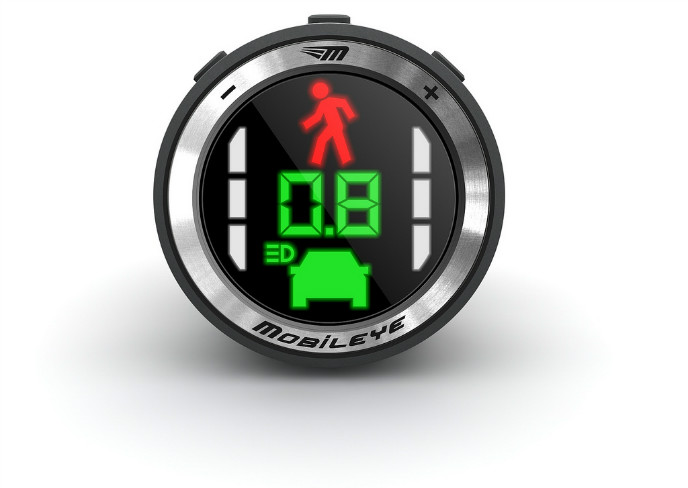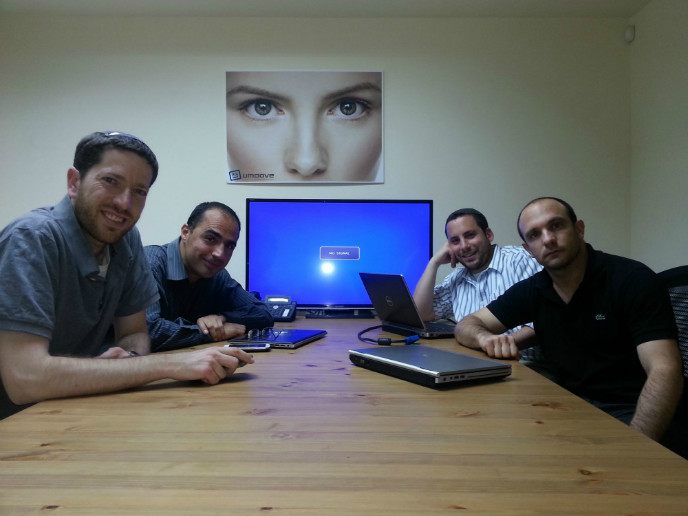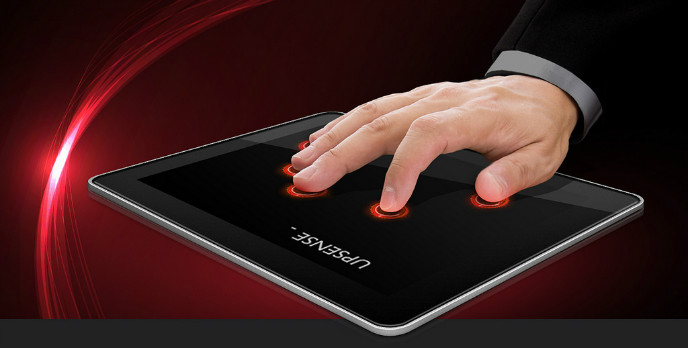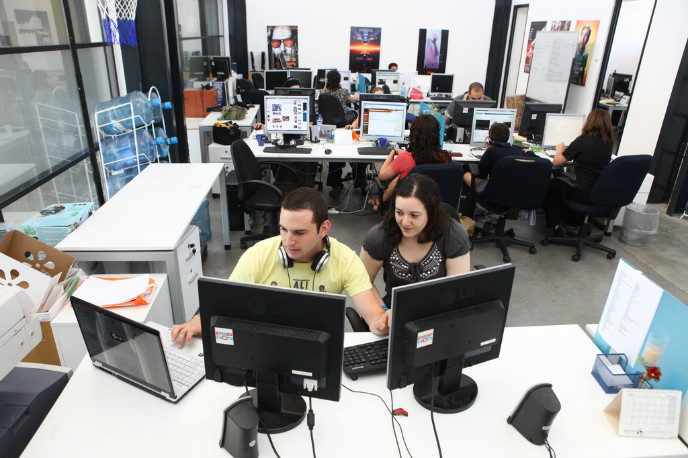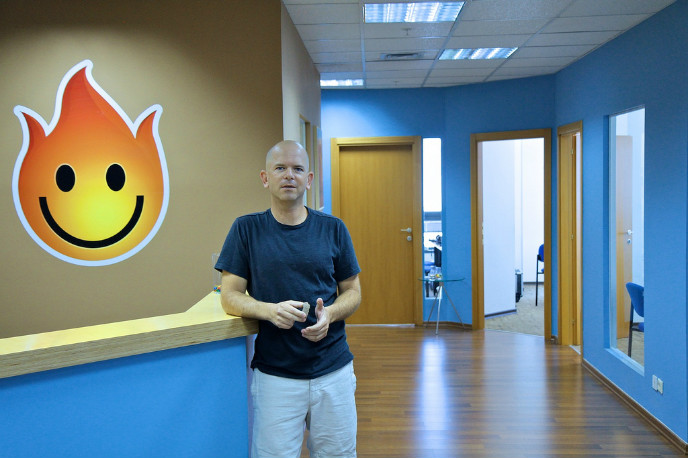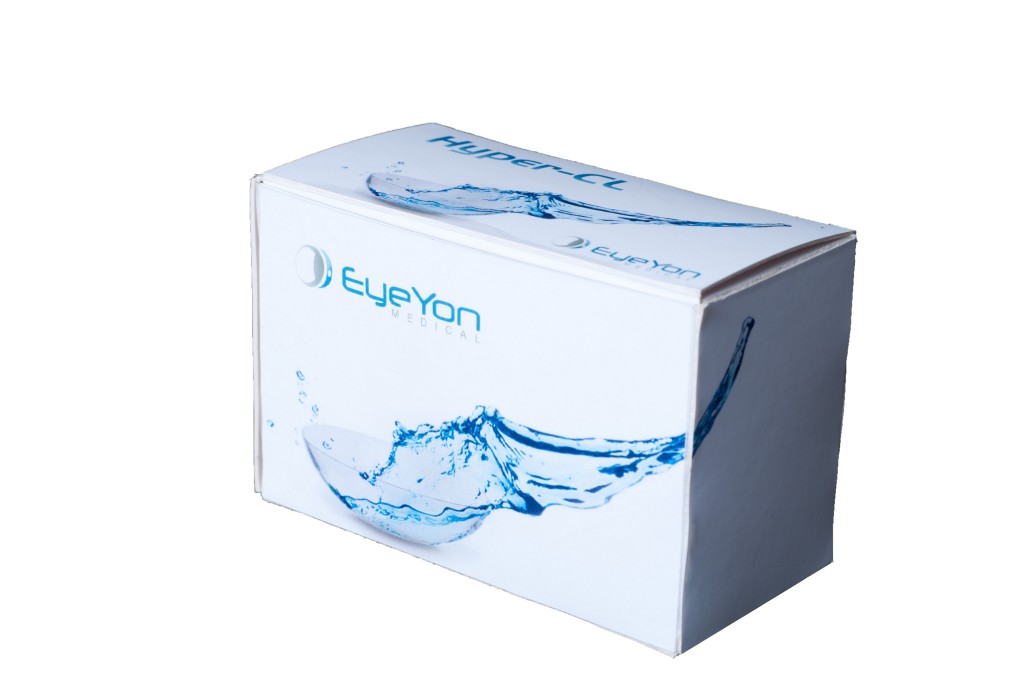Space-tech, cyber-tech, clean-tech, agro-tech, biotech, wearable tech, high-tech – ISRAEL21c reported on breakthroughs in all these areas (and more) during 2014.
Israeli expertise is built into cutting-edge products for everything from smart cars and smart homes to bacteria-banishing fabrics and futuristic mass transport. There’s a lot more on the horizon for 2015.
“We’re going to see some exciting innovations next year,” predicts Nimrod Kozlovski, a partner in Jerusalem Venture Partners (JVP) and JVP Cyber Labs in Beersheva.
He and other experts helped us put together this list of 12 disruptive tech areas in which Israeli companies will continue to make their mark in the coming 12 months.
- Computer vision
Israel is a world leader in the technology of using smart algorithms to teach computers how to make sense of what they “see.”
Mobileye and Briefcam grabbed headlines in 2014 for automotive and security computer vision, respectively. Next year, look for advances in entertainment, augmented reality and wearable computing. Many of these will be displayed on March 24 at the sixth Israel Machine Vision Conference in Tel Aviv.
Companies to watch: Infinity Augmented Reality , working on a technology enabling 3D digital representation of one’s surroundings on any device, and interacting intuitively with that content; RSIP Vision, which provides customized advanced computer vision technology for everything from the operating room to the smartphone; RTC Vision, serving markets including medical imaging, security and surveillance.
2. Wearable and mobile health devices
This global trend will keep gathering steam in 2015. Israeli-made face- and eye-tracking sensors could be embedded in smart watches and other wearables to measure sobriety and diagnose conditions ranging from ADHD to concussion to Alzheimer’s. Israeli knowhow will be packaged into more and more mobile devices that double as diagnostic, monitoring and treatment tools.
Companies to watch: Umoove face- and eye-tracking software for mobile devices; Oxitone wearable pulse oximetry platform; MobileOCT, software to turn a smartphone into a diagnostic tool for detecting cervical cancer; MeMed Diagnostics, a novel assay that accurately distinguishes between bacterial and viral infections.
- Machine-machine and human-machine interface
Expect to see more Israeli companies introduce sensors, detectors, operating platforms and security systems for the Internet of Things revolution in machine-to-machine connectivity, as well as for the parallel revolution in human-to-machine interface.
Nissan Yaron of Inpris says his patent-pending technology for recognition of finger gestures on touchscreen devices will take the danger out of looking at a screen while driving, for example. “The core technology is ready on the R&D side, and we are learning what needs to be done for it to be developed for third parties as an SDK [software development kit] to create apps for safety and security, and maybe as a launcher for wearable technology.”
Companies to watch: Sol Chip, maintenance free IoT solutions based on its Everlasting Solar Battery; MUV Interactive, whose Bird ring-like accessory turns a room into a 3D interactive workspace; Inpris finger-recognition technology.
- Mobile productivity
Do you remember life before made-in-Israel apps such as Waze, 24me and Any.do came along to help you organize and maximize your precious time on the road and in the office? No, we don’t either. Next year, additional help is coming your way from Israel.
Personal-assistance apps will combine sophisticated prediction technology with big-data crunching and crowdscourcing capabilities to take you to the next level of efficiency in everything from planning meetings to finding a parking space and getting there on time, says Ori Choshen, CEO of VLX Ventures in Jerusalem.
Voice-activated personal-assistance apps are also a growing trend; Microsoft’s new Cortana smartphone assistant was built by the company’s Israeli development team.
Companies to watch: Meeter prediction technology to schedule and track meetings; WonderVoice hands-free voice assistant; Ginger Software mobile and desktop language-enhancement solutions for improved writing and productivity.
- Smart data storage
Mega-bucks were invested during 2014 in Israeli data-storage companies in light of ever-growing demand for solutions in storing high-definition, real-time content and big data.
Kozlovski predicts that innovative storage products from Israel will shake the market in 2015. “We’ll see hybrid software solutions to manage and combine old and cheap magnetic storage with very new and efficient but costly flash storage.”
Companies to watch: Reduxio Systems next-gen storage platform, DataBank secure underground media vaults and other off-site solutions; CTERA Networks award-winning cloud storage solutions.
- Cyber-security
Many Israeli companies have developed detection tools against cyber-attacks. Tomorrow’s focus is on smart analytical and big-data security systems to manage existing detection tools and to prevent “detection fatigue” caused by false alerts. Integrated solutions for comprehensive immunity from cyber-attack will also be hot.
Kozlovski reveals that Israel has “many companies with early-stage solutions that will provide the level of mobile security protection we really need,” and they will be shielded in the cloud for added safety.
Companies to watch: ThetaRay big-data analytics solutions; SecBI solutions for security operation centers; Nyotron Information Security protective products against Zero Day, advanced persistent threats (APTs) and unknown attacks; CyberArk award-winning solutions for APT protection and privileged account security.
- Immunotherapy
Big pharma is investing heavily in immunotherapy, which seeks to modulate the immune system to fight autoimmune diseases (by suppressing an overactive immune system) and cancer (by enhancing the immune response). Several Israeli companies have a significant presence in this promising field.
One example: Bayer HealthCare is collaborating with drug-discovery company Compugen to develop antibodies as therapeutic drugs for two of the 11 novel potential immune checkpoint regulators that Compugen’s algorithm-based platform has identified.
“Next year we will continue to advance multiple checkpoints to further prioritize them and develop therapeutic antibodies against them,” says Tsipi Keren-Lehrer, Compugen’s vice president of business development. “We also plan to advance one or more checkpoints toward the clinic and evaluate different collaboration opportunities.”
Companies to watch: Drug discovery platform, Compugen; CureTech Bio novel immune-modulating products for treating and controlling cancer; cCam Biotherapeutics novel immunotherapies for cancer indications; Efranat anti-cancer immunotherapy treatment based on a natural plasma protein molecule.
- Advertising and monetization
Israel is becoming a leader in programmatic advertising, also known as algorithmic advertising, says Kozlovsky.
“Ad solutions based on creative content and the wisdom of ad agencies is vanishing, and we see the dominance of computers in planning and executing ad campaigns using smart analytics. Last year, Israel had $3 billion in exports in the ad and monetization market, and we’ll see growth in real-time advertising and algorithmic buying and placing of advertising space. We’ll also see more focus on mobile advertising, and Israel really has a role to play here.”
Companies to watch: ironSource platform for software discovery, distribution, delivery and monetization; AnyClip metadata-based technology for distribution, marketing and monetization of premium content; MyThings predictive artificial intelligence ad platform for e-commerce.
- Network optimization
We’re talking here about novel software solutions to optimize and accelerate traffic, communication and routing on a fast-growing Internet highway where the old traffic signals don’t cut it anymore.
Companies to watch: Hola browser extension/app to increase Internet speed; Flash Networks mobile Internet optimization and monetization solutions.
10. Less invasive medicine
Omer Schalit Cohen, VP-business development at Trendlines Medical accelerator, says Israeli startups will meet the demand for innovative tools and devices facilitating less invasive diagnostic and therapeutic techniques. “Surgical devices from Israeli companies, such as ApiFix [for scoliosis treatment] and Virtual Ports [laparoscopic micro-tools], shorten the procedure and recovery time, and reduce risks,” he tells ISRAEL21c.
Companies to watch: MitrAssist minimally invasive treatment for mitral valve regurgitation; EyeYon Medical, which makes a contact lens to treat corneal edema; Pneumedicare continuous, non-invasive monitoring of respiratory function and ventilation; ElMindA noninvasive technique for mapping neural pathways in the brain.
11.Regenerative medicine and cell therapy
Type 1 diabetes, cartilage and bone loss, neurodegenerative diseases – major strides against these and other incurable conditions are on the horizon thanks to advances in regenerative and cell-therapy technologies, many of them coming from Israeli labs.
Bonus BioGroup, for example, is constructing the world’s first plant to produce regenerated bone, in Haifa.
Companies to watch: Orgenesis technology to convert liver cells into insulin-producing cells as a treatment for diabetes; CartiHeal cell-free implant that enables simultaneous bone and hyaline cartilage regeneration; CoreBone bioactive bone-graft material for dental, orthopedic and spine applications; BrainStorm Cell Therapeutics, which makes an autologous stem-cell therapy for neurodegenerative diseases; Bonus BioGroup technology for supplying bone-regeneration tissues; Regentis Biomaterials degradable hydrogel implants to regenerate damaged or diseased orthopedic tissue.
12. Ecommerce optimization and security
As online commerce grows, so does the need for technologies to optimize the experience for sellers and buyers. Israeli companies are already providing ecommerce solutions and will increasingly move into software for affiliate commerce, mobile commerce, social-network commerce and other forms of integrated online business.
A related aspect is user-authentication software to help determine if someone’s profile is real or fake. This is critical to dating and services websites like eHarmony and Airbnb.
Companies to watch: Dealply comparative shopping browser add-on; StoreYa automated marketing apps; Cimagine Media augmented-reality platform for viewing merchandise from all angles and distances; Tangiblee visual try-on platform personalized to each shopper; I Am Real user-verification technology to decrease e-tail risk and fraud.
Fighting for Israel's truth
We cover what makes life in Israel so special — it's people. A non-profit organization, ISRAEL21c's team of journalists are committed to telling stories that humanize Israelis and show their positive impact on our world. You can bring these stories to life by making a donation of $6/month.








